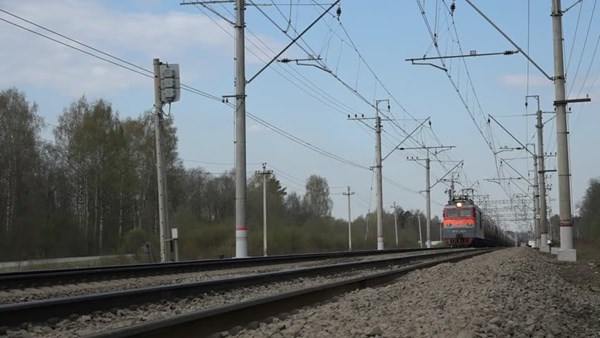Russia faces looming fuel shortage as railway network falters amid war and sanctions
In Russia, the economic landscape is facing a formidable challenge: the country’s railway network is failing to manage the crucial transportation of oil and petroleum products, potentially leading to a gasoline shortage across the nation. The Russian newspaper Kommersant reports that Russian Railways (RZD) is struggling with the dispatch of fuel tanks, raising the threat of supply disruptions in the domestic market. Oil powerhouses "Rosneft" and "Gazprom Neft" have already sounded the alarm over the dire potential consequences.
“If the situation doesn’t improve, Russia faces a fuel crisis,” industry insiders warn. "RN-Trans" (a subsidiary of Rosneft) reports that 47% of fuel produced at the Samara Group refineries wasn't accepted by RZD, leading to a backlog of 498 fuel tankers by the end of January. The Angarsk Petrochemical Company (ANHK) couldn't dispatch more than 40% of its shipments, which equates to about 700 tankers. "Gazprom Neft" estimates that 396,900 tons of oil products are stalled, with 242,900 tons intended for the domestic market.
This dilemma indicates that Russian gas stations might soon grapple with fuel shortages, jeopardizing export contracts.
Russia’s vast railway network—the third longest globally—has virtually broken under pressure. Data from Reuters cite several reasons: wartime priorities have redirected much capacity toward military equipment and ammunition transportation. Sanctions have deprived RZD of spare parts, resulting in increased train downtimes. Mobilization and war-time recruitment have led to a shortage of locomotive engineers, as many have either headed to the front or work in arms factories.
While Russia attempts to shift trade towards China, the existing infrastructure can't handle such an increased cargo flow.
As of 2024, average freight train speeds have plummeted to 40.6 km/h, the lowest since 1960. The sectional speed, including stops, has decreased to 35.7 km/h—the slowest since 1993. Last year’s gridlock hindered importers from receiving 80 million tons of cargo, and "Rusal" plants were left with hundreds of thousands of tons of unshipped aluminum.
The resulting impacts are catastrophic:
Fuel Crisis: If oil companies can't continue fuel shipments, a shortage will hit citizens and industries alike.
Rising Fuel Prices: With a gasoline deficit, gas stations will inevitably hike prices.
Export Hurdles: Facing sanctions, Russia is already losing markets, and transport chaos threatens remaining contracts.
Economic Decline: Without a stable logistics system, the entire industrial sector is experiencing disruptions, leading to further losses and reduced budget revenues.
Russia finds itself ensnared by the constraints of war, sanctions, and an economic crisis. The turmoil on its railways is merely a symptom of systemic collapse, further weakening the Kremlin's position. Without vital income from oil and reliable fuel supplies, the Russian economy will likely deteriorate even more rapidly.
